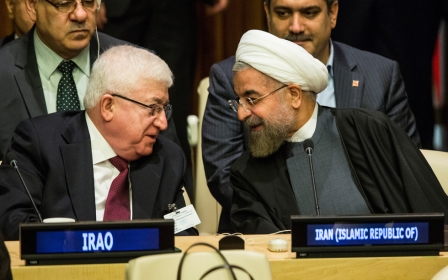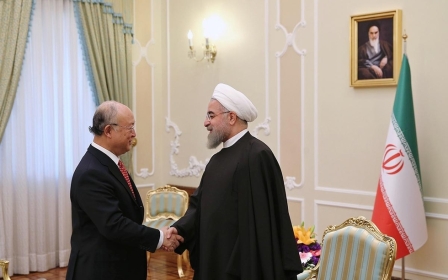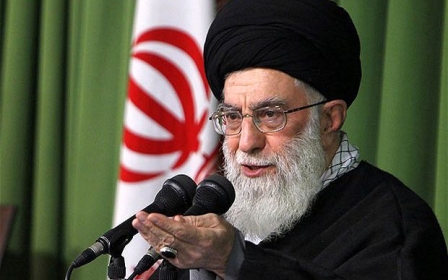Iran's Rouhani proposes prisoner swap with US

Tehran plans to free three Americans from its prisons if the United States releases jailed Iranians, President Hassan Rouhani said on Sunday.
"If the Americans take the appropriate steps and set them free, certainly the right environment will be open and the right circumstances will be created for us to do everything within our power and our purview to bring about the swiftest freedom for the Americans held in Iran as well," Rouhani, who is visiting New York for the UN General Assembly, told CNN.
At least three Americans, all of them of Iranian heritage, are in jail in Iran including Jason Rezaian, a correspondent for The Washington Post who was arrested in July 2014 and accused of spying.
The two other Americans are Amir Hekmati, a former US Marine who was charged with spying, and Saeed Abedini, a convert to Christianity who gathered a Bible study group.
According to a report in the New York Times, US congressman Dan Kildee ran into Iran's Foreign Minister Mohammad Javid Zarif and "had a good conversation" about releasing the Americans.
Much of Iran's judiciary is known for its closeness to hardliners, who are eager to scuttle the moderate Rouhani's efforts to reconcile with Western powers.
"Nothing would make me happier" than movements to release prisoners, Rouhani said.
The United States has regularly demanded the unconditional release of the three prisoners.
Speaking on the American news programme 60 Minutes, Rouhani said that the US has jailed several Iranian citizens, and claimed that the imprisonments are "unilateral and illegal".
On that same episode, he added: “I don’t particularly like the word ‘exchange,’ but from a humanitarian perspective, if we can take a step, we must do it. The American side must take its own steps.”
Under Rouhani, Iran has reached an agreement with the United States and five other powers to end suspicious nuclear activity in return for sanctions relief.
While tensions have eased, Iran and the United States have not had diplomatic relations since 1980, a year after the Islamic revolution toppled the Western-oriented shah.
Another American, former FBI agent Robert Levinson, disappeared in Iran in 2007 but his whereabouts are unclear.
Secretary of state John Kerry, who is in New York for this week's meeting of the UN General Assembly, was asked if he supported this exchange.
Playing down expectations, he said "I have yet to hear directly from the Iranians on anything direct. We've had some conversations but ... we'll wait and see where we are."
New MEE newsletter: Jerusalem Dispatch
Sign up to get the latest insights and analysis on Israel-Palestine, alongside Turkey Unpacked and other MEE newsletters
Middle East Eye delivers independent and unrivalled coverage and analysis of the Middle East, North Africa and beyond. To learn more about republishing this content and the associated fees, please fill out this form. More about MEE can be found here.




